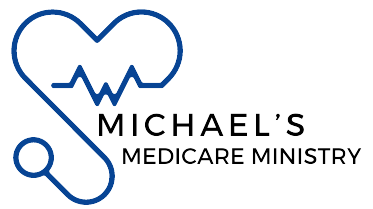When it comes to choosing the right Medicare plan, the process can seem overwhelming. There are many options, details, and rules that may be unfamiliar, making it crucial to seek expert guidance. A Medicare Insurance Agent in Beaverton can help simplify the decision-making process and ensure that you choose the best plan for your unique healthcare needs. To make the most of your appointment, it’s important to go prepared with the right questions.

1. What Types of Medicare Plans Are Available?
Medicare has several parts, and it’s essential to understand the differences between them. Generally, you’ll encounter:
- Medicare Part A: Covers hospital stays, skilled nursing facility care, hospice care, and limited home health services.
- Medicare Part B: Provides coverage for outpatient services like doctor visits, preventive services, medical supplies, and more.
- Medicare Part C (Medicare Advantage): These plans are offered by private insurers and often include additional benefits like prescription drug coverage, dental, and vision services.
- Medicare Part D: Covers prescription drugs, helping reduce the cost of medications.
- Medigap (Supplemental Insurance): Helps cover out-of-pocket costs not included in Original Medicare (Parts A and B), like deductibles and coinsurance.
A good question to ask during your meeting is how these options compare and which one aligns best with your specific healthcare needs.
2. What Will My Out-of-Pocket Costs Be?
Understanding the potential costs associated with Medicare plans is crucial. Out-of-pocket expenses vary depending on the plan you choose and can include premiums, deductibles, copayments, and coinsurance. Some plans may offer lower premiums but come with higher out-of-pocket costs when you need care. Others might offer more comprehensive coverage but at a higher monthly premium.
Ask your agent to break down what you can expect to pay in a given year, including any potential unexpected costs.
3. Can I Keep My Current Doctor?
If you’re happy with your current healthcare providers, you’ll want to ensure they accept the plan you’re considering. Not all Medicare Advantage plans have the same provider networks, and switching to a new doctor could disrupt the continuity of your care.
It’s important to ask your agent whether your preferred doctors, specialists, or healthcare facilities are in the network of the plan you’re looking at. If not, ask about other options or whether switching doctors might be necessary.
4. Does the Plan Cover Prescription Drugs?
Prescription drug costs can be a significant part of healthcare expenses. While Original Medicare (Parts A and B) does not cover most prescription drugs, Medicare Part D or some Medicare Advantage plans do. The formulary, or list of covered medications, can vary by plan, and some medications may not be included at all.
Make sure to ask about the specific coverage for the medications you are currently taking. Additionally, inquire about the plan’s preferred pharmacies and mail-order options, as these can affect your out-of-pocket costs for prescriptions.

5. What Additional Benefits Are Included?
Many Medicare Advantage plans offer extra benefits that are not part of Original Medicare. These can include:
- Dental Coverage: Cleanings, exams, and even major dental work.
- Vision Coverage: Eye exams, glasses, or contacts.
- Hearing Coverage: Hearing aids and exams.
- Wellness Programs: Some plans include gym memberships or fitness programs.
Ask your agent what additional benefits might be available through the Medicare plans you’re considering and how they align with your personal needs.
6. Are There Any Enrollment Deadlines I Need to Know About?
Missing important Medicare deadlines can result in penalties or gaps in your coverage. Generally, you have several opportunities to enroll in Medicare:
- Initial Enrollment Period (IEP): This is a seven-month period that includes the three months before, the month of, and the three months after your 65th birthday.
- Annual Enrollment Period (AEP): Held each year from October 15 to December 7, this is when you can make changes to your Medicare plan for the following year.
- Special Enrollment Period (SEP): Certain life events, like moving or losing other coverage, may qualify you for a Special Enrollment Period.
Ensure your agent provides you with all the necessary dates and helps you avoid any costly penalties by enrolling on time.
7. How Do Medicare Advantage Plans Differ from Original Medicare?
Medicare Advantage plans are often marketed as an “all-in-one” alternative to Original Medicare, but it’s crucial to understand the trade-offs. Original Medicare offers broad access to healthcare providers and facilities, while Medicare Advantage plans typically require you to use a network of providers.
Ask your agent to explain the key differences between Medicare Advantage and Original Medicare in terms of coverage, costs, flexibility, and access to care. This will help you weigh the pros and cons based on your specific situation.
8. How Do I Appeal a Denied Claim?
There may be instances where your Medicare plan denies coverage for a service or treatment. Knowing how to appeal a denied claim is essential. Ask your agent about the appeal process, what documentation is required, and how to increase the chances of a successful appeal.
Understanding your rights and the process in advance can save you stress should an issue arise.

9. Can I Change Plans Later If My Needs Change?
Life circumstances can change, and so can your healthcare needs. Ask about your options for changing plans in the future. For instance, you can switch plans during the Annual Enrollment Period or in some cases, a Special Enrollment Period. Make sure to ask if there are any restrictions, fees, or limitations when changing plans.
10. What Resources Are Available for Ongoing Support?
It’s important to have ongoing access to support if you have questions or concerns about your plan. Ask whether the agent or their organization provides any resources, such as online tools, customer service hotlines, or local offices where you can get help. Additionally, inquire if they offer annual reviews to ensure your plan continues to meet your needs as your healthcare situation changes




